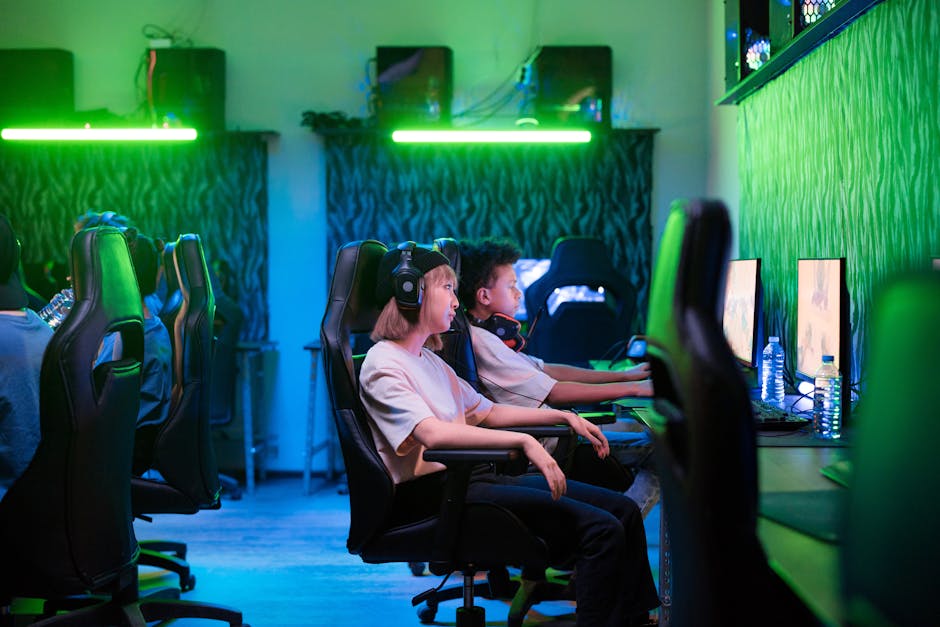As a passionate gamer and tech enthusiast, I’ve witnessed firsthand the transformative power of blockchain technology in the gaming industry. From enhancing in-game asset ownership to revolutionizing digital economies, blockchain is reshaping how we play and interact in virtual worlds. In this article, I’ll delve into the exciting ways blockchain is influencing gaming and the implications it has for the future of the industry.
Blockchain’s decentralized nature not only provides security and transparency but also opens up new possibilities for gamers to truly own their virtual items. With the rise of non-fungible tokens (NFTs) and blockchain-based marketplaces, players can trade, sell, and collect in-game assets like never before. Join me as we explore the intersection of blockchain and gaming, and discover the endless opportunities it brings to the gaming landscape.
The Emergence of Blockchain in Gaming
Blockchain technology has rapidly made its mark on the gaming industry, transforming the way gamers interact with virtual assets and digital economies. Let’s delve into the evolution of blockchain technology within gaming and its profound implications.
A Brief History of Blockchain Technology
I’ve witnessed the evolution of blockchain technology from its inception to its widespread adoption in various sectors. Initially introduced as the underlying technology for cryptocurrencies like Bitcoin, blockchain has proven to be a game-changer in ensuring secure, transparent, and decentralized transactions. As blockchain matured, its applications extended beyond finance to areas like supply chain management, healthcare, and, notably, gaming.
Early Blockchain Games and Innovations
Exploring the early stages of blockchain integration in gaming, I’ve seen pioneering projects that paved the way for the industry’s transformation. From decentralized marketplaces for in-game assets to the introduction of non-fungible tokens (NFTs) enabling true ownership of digital items, the early blockchain games showcased the immense potential for innovation. These innovations not only empowered gamers to have verifiable ownership but also opened up new avenues for the creation and exchange of unique virtual assets, revolutionizing the gaming landscape.
Key Benefits of Blockchain in Gaming

I’ve delved deeper into the advantages that blockchain technology brings to the gaming industry. Let’s explore how it enhances security, ensures true ownership of assets, and opens up new revenue streams for both players and developers.
Enhanced Security Measures
Blockchain in gaming bolsters security through its decentralized structure. By distributing data across a network of computers, it minimizes the risk of fraudulent activities or hacks. This level of security ensures that in-game assets and transactions are protected against unauthorized modifications, providing players with a safe gaming environment.
True Ownership and Asset Interoperability
One of the remarkable benefits of blockchain in gaming is the concept of true ownership. Through blockchain technology, players can have verifiable ownership of their in-game assets using NFTs. These non-fungible tokens allow for unique digital items that can be securely stored and traded across different gaming platforms, enhancing asset interoperability and enabling players to truly own their virtual possessions.
New Revenue Streams for Players and Developers
Blockchain introduces innovative revenue streams for both players and developers. Players can earn cryptocurrencies or valuable in-game assets that hold real-world value through gameplay achievements or by participating in unique gaming experiences. Developers can leverage blockchain to create play-to-earn models, where players are rewarded for their time and skill, fostering a more engaging and rewarding gaming ecosystem for all participants.
Challenges Facing Blockchain Gaming
When it comes to blockchain gaming, there are certain challenges that need to be addressed to fully leverage the potential of this technology in the gaming industry. Let’s delve into some of the key obstacles that developers and players may encounter in the realm of blockchain gaming.
Scalability and Performance Issues
In blockchain gaming, one of the primary challenges is scalability and performance issues. The decentralized nature of blockchain, while offering benefits such as security and transparency, can also lead to slower transaction speeds and higher costs. This can negatively impact the overall gaming experience, especially in fast-paced games where real-time transactions are crucial.
Developers have been working on solutions such as layer-2 scaling solutions and off-chain processing to improve scalability and performance in blockchain games. By addressing these technical challenges, developers aim to enhance the user experience and make blockchain gaming more accessible to a broader audience.
Regulatory and Legal Hurdles
Another significant challenge in the realm of blockchain gaming is regulatory and legal hurdles. The intersection of gaming regulations and blockchain technology can present complex compliance issues for developers and platform operators. Uncertainty surrounding the legal status of in-game assets, digital currencies, and NFTs can create barriers to adoption and innovation in the gaming industry.
Navigating these regulatory and legal challenges requires collaboration between industry stakeholders, regulatory bodies, and legal experts to establish clear guidelines and frameworks for blockchain gaming. By fostering an environment of regulatory clarity and compliance, the industry can unlock the full potential of blockchain technology in gaming while ensuring consumer protection and industry integrity.
Notable Blockchain Gaming Projects
Exploring notable blockchain gaming projects sheds light on the innovative implementations within the industry. These projects showcase the intersection of cutting-edge technology with interactive gaming experiences.
Decentraland: Virtual Reality Meets Blockchain
In Decentraland, users can own virtual land through blockchain technology, giving them true ownership of digital assets within the platform. This integration of virtual reality and blockchain enables users to create, explore, and monetize their virtual experiences. Decentraland’s decentralized nature ensures transparency and security in transactions, revolutionizing the concept of virtual ownership.
Axie Infinity: A New Model for Gaming Economies
Axie Infinity introduces a play-to-earn model, allowing players to earn cryptocurrencies by participating in the game. Through blockchain technology, players can truly own in-game assets, such as Axies, which are unique digital creatures with varying traits and abilities. This ownership model transforms the gaming economy by providing players with tangible rewards and fostering a vibrant in-game marketplace driven by player interactions.
Future Prospects of Blockchain in Gaming
Blockchain technology is poised to bring about significant advancements in the gaming industry. As a game changer, blockchain offers vast potential for transforming the gaming experience in various ways.
Potential Technological Advancements
Blockchain integration in gaming is expected to lead to enhanced security and transparency. By utilizing decentralized ledgers, players can have secure and transparent ownership of in-game assets. This can prevent fraud, counterfeit items, and improve the overall trustworthiness of virtual goods.
Moreover, smart contracts powered by blockchain can automate various in-game processes, such as asset trading, tournaments, and rewards distribution. This automation not only streamlines gaming operations but also ensures fairness and efficiency in transactions.
Predictions for Blockchain Integration
Looking ahead, the future of blockchain in gaming seems promising. Experts predict that blockchain will enable cross-game asset interoperability, allowing players to use their virtual assets across different gaming platforms seamlessly. This interoperability can create a dynamic gaming ecosystem where players have more flexibility and control over their gaming assets.
Additionally, the integration of blockchain is expected to revolutionize the monetization models in gaming. With the rise of play-to-earn models and tokenized assets, players can potentially earn real value through their gaming experiences. This shift can lead to new revenue streams and incentives for both players and developers, reshaping the gaming landscape.



